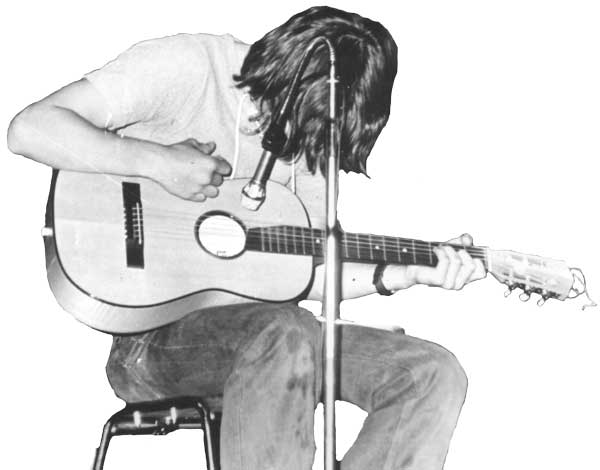A. Only A Music Theory

When I started playing guitar at age 14 or so, I was concentrating on the sheer awkwardness of getting to make my fingers hold down the right string in the right position. Only after the physical aspect got a little easier and more second nature, did music theory come in the mix. At first it was learning about various chords that somehow belong together. At some point the need to improvise a melody arose. You use a scale, or two, or three. Then musical keys. Major/minor relationships. And, yes, I am leaving rhythm out, because that was possible without a theory.
Things got interesting when I developed an interest in writing my own music. Although, to be honest, that was for a very long time more the process of picking out segments or sections from existing music that gave me goosebumps, rewriting it and somehow making it my own. But that’s no disgrace; in art, most output seems to be some sort of imitation – occasionally improving on the original.
You can take whole university semesters learning about highly advanced and refined aspects of music theory. Oftentimes (to me at least), compositions coming out of that sound like case studies, and unless one knows the theory behind a certain piece it it can sound pretty random. For the “everyday working” musician, theory is more like a tool to find the right chords and scales – with the final judge being if it sounds “good”.
I want to start this philosophical trip with music. Mostly because I know some stuff about it.
